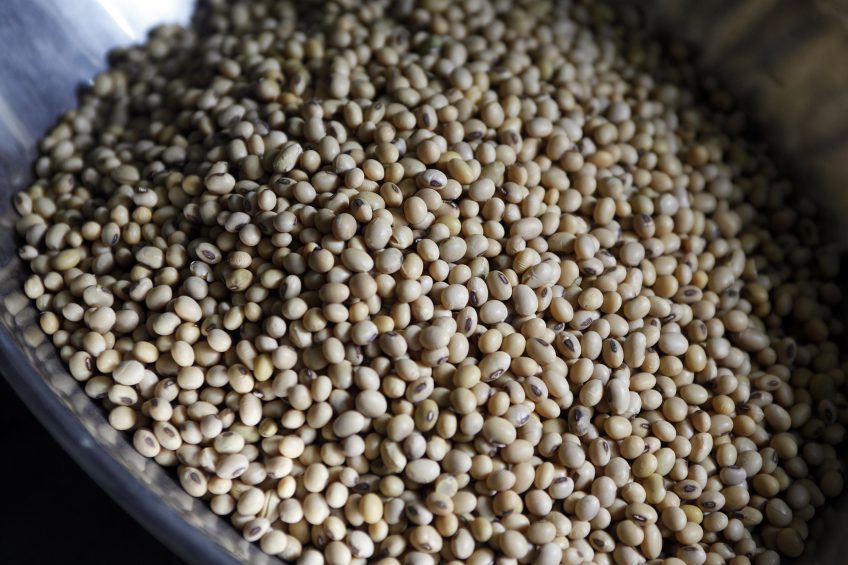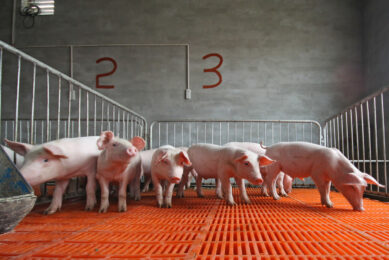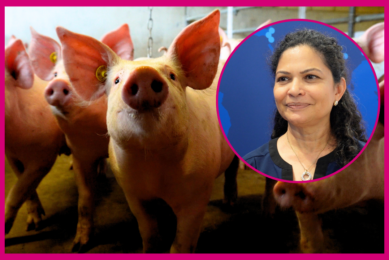Can glyphosate affect piglet health?

Danish scientists will examine whether residues of glyphosate in feed can affect the health and productivity of pigs and poultry.
Senior scientist Martin Tang Sørensen of Aarhus University, Denmark, will set up a large research project into this question, that will last from the beginning of this year until July 2020. Key question is whether glyphosate residues, originating from herbicides used in feed production, (for instance Roundup, Monsanto) can affect health and productivity of farm animals.
About glyphosate
In a news article on the university’s website, it explains that glyphosate is valued in farming as an effective remedy to fight weeds. When the active substance glyphosate was introduced in farming in 1974, it was used for simple weed control.
The news article explains that, later it became common to use glyphosate during the actual cultivation of crops, and sometimes these crops were genetically modified to be tolerant to glyphosate, like for instance genetically modified soybeans. These new applications result in glyphosate residues in animal feed.

Find all there is to know about pig health using Pig Progress’ unique Pig Health Tool
In addition to its properties in weed control, glyphosate is also patented as a broad-spectre antibiotic that can affect bacteria and other micro-organisms. In addition, glyphosate is patented for its ability to bind minerals. The new project focuses on these two patented properties, the news article summarised.
Affecting the composition of bacterial populations
“With this knowledge of glyphosate’s ability to affect certain micro-organisms it should be examined whether glyphosate can affect the composition of the bacterial population in the gut of farm animals,” said Sørensen in the same news article.
“Further, glyphosate has the property of being able to bind to metals and minerals including essential micro minerals, and it should therefore also be examined whether this affects health and productivity.”
The effect of glyphosate residues on piglets
The need to refuse or confirm the potential effect of glyphosate on the health status of farm animals has been strengthened, the article reports, following reports from farmers that linked the occurrence of a diarrhoea-like condition in poultry as well as diarrhoea in piglets to the use of genetically modified soy in feed. These experiences from practice have not, however, been scientifically documented.
Sørensen said, “Presently there are no major scientific studies on potential effects of glyphosate on the micro-organisms in the gut or on the availability of micro minerals in farm animals, and it therefore makes sense to conduct such studies to generate data from farm animals exposed to glyphosate residues via the feed.”
Gastro-intestinal micro-organisms in pigs
The project shall examine the effect of glyphosate on the gastro-intestinal micro-organisms and on the mineral status in pigs and poultry as well as possible secondary effects on the animals’ health and productivity.
The studies will be conducted both at the research facilities at Aarhus University, Foulum as well as in a number of commercial herds. The studies will be carried out with newly weaned piglets and laying hens.
Sørensen concluded, “Depending on the results from these studies subsequent studies could include cattle.”
The project shall be conducted by scientists at Aarhus University in collaboration with SvineRådgivningen; SvineVet; Seges and Sall&Sall Advisors. The project is funded by a DKK 10 million (€1.3 million) grant from the Velux Foundations.











